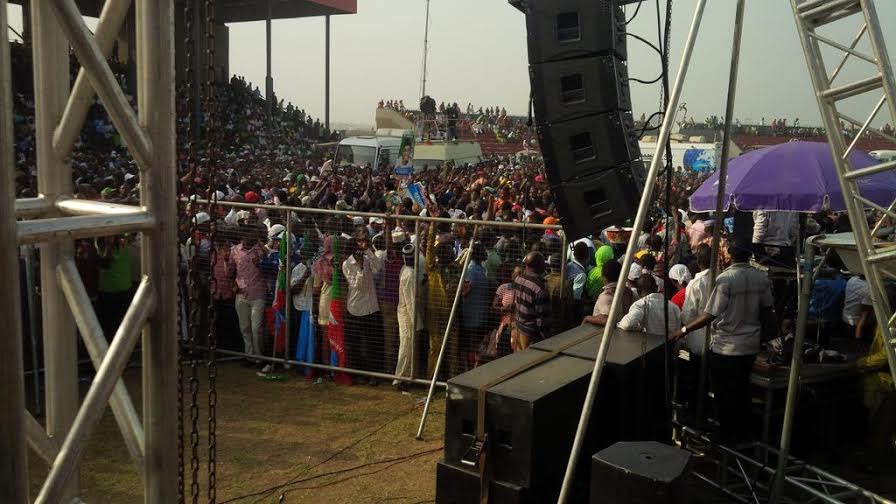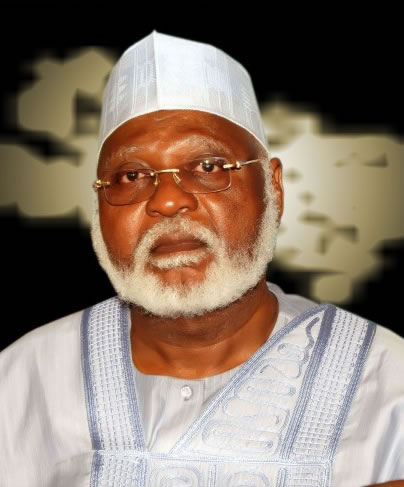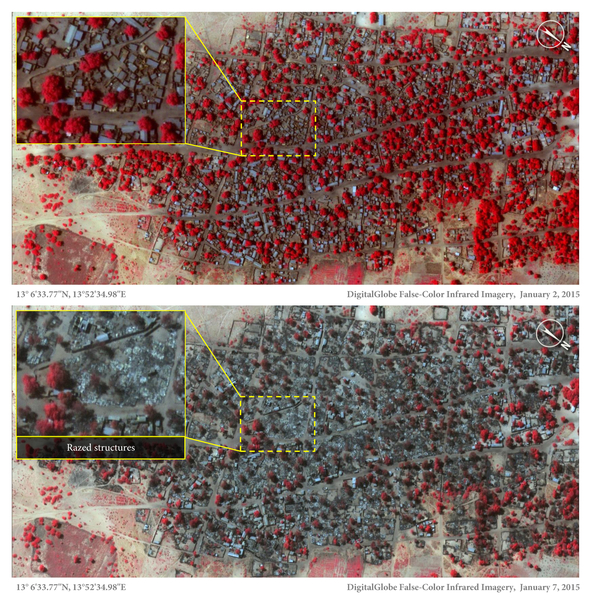President Goodluck Jonathan has raised an alarm on the possibility of violence during and after next month’s presidential election, maintaining that inflammatory statements should be held responsible.
He said in Bauchi in the 2011 presidential election, when 10 members of the National Youth Service Corps were killed, he won only 15% of the votes.
In Kano, he also said, he won only 16% – yet his supporters’ houses were burnt.
“But there were no acts of violence in some other parts of the country where I won by over 50 per cent, so it’s not about electoral malpractice but statements,” he said.
Advertisement
The president was speaking on Wednesday during the general election sensitisation workshop on non-violence organised by the office of the national security adviser and office of the special adviser to the president on inter-party affairs.
“There are two things happening now, which are very worrisome and if they are not properly handled could lead to violence,” he said.
“First is the issue of complaint by some people that they are yet to get their Permanent Voter Cards (PVCs). Some people who don’t have the PVC might assume that INEC wants to rig the election and there is the tendency for those kind of people to go violent. If INEC is unable to make sure that every eligible Nigerian votes, that is a recipe for violence.
Advertisement
“The second thing is that in 2011, INEC conducted the election with ordinary voter cards and the world appreciated that the elections were reasonably credible, but INEC wants to go further to avoid even the hitches they had in 2011.
“They are doing this by deploying IT, which is the global trend and I totally believe in it. But the technology is not so much understood by everybody and also some people may have the capacity to manipulate it. Even in banks, thieves hack into sophisticated systems to steal money.
“So people are also mindful about the technology. Already, people are talking about cloning of cards and so on, so there is apprehension and INEC must tell Nigerians in clear terms that whatever method that they are using is very safe.”
Jonathan expressed optimism that the election would conform to acceptable standards, saying government would strengthen institutions that would make the election hitch-free.
Advertisement
Noting that violence led to the collapse of the first and second republics, Jonathan advised politicians to respect and show love to one another.
“This programme is apt; we really need it because at the end of election, we don’t need to kill people. We don’t need to get our houses and industries burnt,” he said.
“I am also pleased because the emphasis here is electoral violence, not electoral malpractices, because the courts can, to some extent, help with electoral malpractice. But there is nothing that the court can do about electoral violence. In most cases, it is always difficult to convict the people behind mob action.
“If you look at the history of elections in this country, you will see that significant violence, especially in the south-west, led to the collapse of the first republic.
Advertisement
“In the second republic, politicians were relating with themselves even after the elections but during the second round of elections when they started abusing themselves and took to violence, the second republic also collapsed.
“We are now talking about the one that is coming. 2011 was much better than any election conducted in this country and we thank Professor Jega, but even then, there were acts of violence in some parts of the country after the election.
Advertisement
“What led to that level of violence? The only thing that one can deduce is that what leads to violence is not necessarily electoral malpractice but inflammatory statements, because in Bauchi where 10 youth corpers were killed, our party won only 15 per cent and Kano where many houses were burnt, I won only 16 per cent. But there were no acts of violence in some other parts of the country where I won by over 50 per cent, so it’s not about electoral malpractice but statements.
“Now, how do we make sure that as a nation, we reduce or minimise violence if we cannot completely eradicate it? There is really nothing we can do about the forthcoming election, which is just some weeks ahead. We can only strengthen the institutions, advise one another on good conduct.”
Advertisement
He advised stakeholders in the country to avoid inciting and provocative statements.
“People, whether they are religious leaders, traditional leaders, ethnic leaders or political party stalwarts, must stop this hate preaching, threats, provocative and inflammatory statements, which instigate crisis. They must stop statements that look as if they want to divide the country. This has never helped and would never help.
Advertisement
“As leaders at top levels, when you make provocative statements, you are indirectly instigating your supporters to go extremely violent.
“We are all guilty and we all must stop it because if we stop it, our followers will begin to know that we can practice what the late Ibrahim Waziri described as politics without bitterness if we all believe that the struggle to rule is not the struggle to conquer, so that at the end of the election, everybody must be your friend.”
2 comments







halleluyah on that the president has agreed that at least there was rigging in 2011 but that was not the reason for violence because the rigging was perfected but inflamatory statement was the reason for violence and this i agreed to in totality but what was the reason for inflamatory statement. food for thought
so you are ready to fight again i guess?? because PDP will win again!!!!